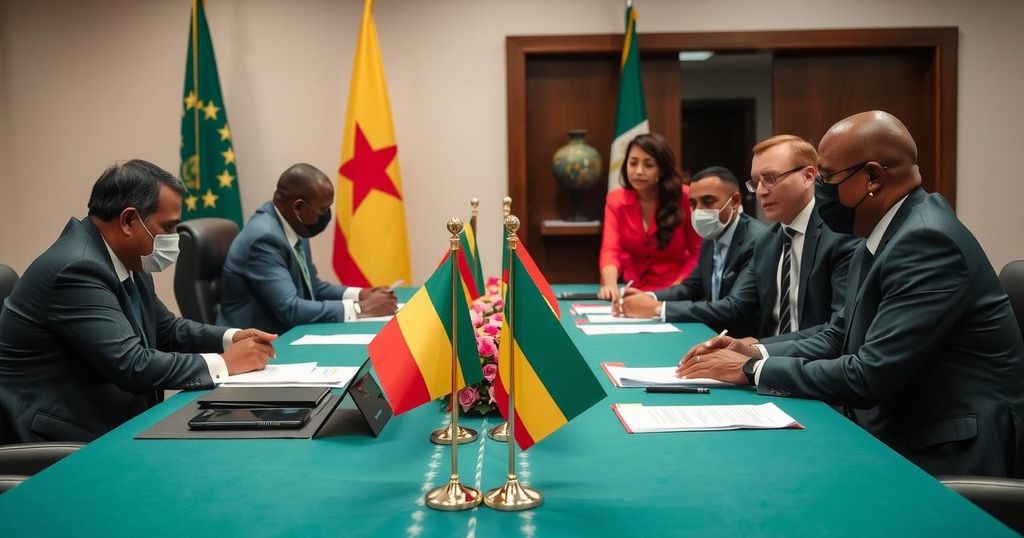Ethiopia’s Defence Minister visited Somalia, signaling improved relations after tensions over a proposed naval base in Somaliland. The visit follows threats from Somalia to expel Ethiopian troops unless certain agreements are renounced. Both governments have agreed to pursue negotiations to resolve the longstanding dispute, vital for regional stability in the fight against Al-Shabaab.
On Thursday, Ethiopia’s Defence Minister Aisha Mohammed Mussa visited Somalia, marking a crucial step towards mending relations after a significant downturn triggered by Ethiopia’s controversial plan to establish a naval base in Somaliland. The visit was confirmed by Somalia’s State Minister for Foreign Affairs, Ali Omar, although he did not disclose specific discussions surrounding the trip. The Ethiopian government has yet to provide a response regarding the visit.
Ethiopia has stationed approximately 10,000 troops in Somalia as part of an effort to combat the militant group Al-Shabaab. Recently, tensions escalated when Mogadishu threatened to remove these troops unless Ethiopia rescinded its agreement with Somaliland to lease coastlines for military and commercial purposes. Somaliland declared autonomous governance in 1991, but its quest for full independence remains unrecognized internationally. Somalia perceives this agreement as a provocative act against its sovereignty, further straining diplomatic relations.
Following heightened tensions and unsuccessful international mediation, both Somalia and Ethiopia committed to collaborative efforts as of December 11, after negotiations held in Turkey. These discussions aimed to foster dialogue and establish technical negotiations by the end of February. The presence of Ethiopian troops is integral to regional stability and is part of a broader African Union peacekeeping mission aimed at curbing Al-Shabaab’s insurgency, which has persisted since 2007.
The controversy surrounding the Somaliland deal has broader implications for regional dynamics in the Horn of Africa, compelling Somalia to seek closer ties with Ethiopia’s historical competitors, Egypt and Eritrea. As both nations strive to stabilize their relations, the outcome of these diplomatic efforts could significantly impact the ongoing conflict within the region.
Ethiopia and Somalia have a longstanding but complex relationship, shaped by geopolitical dynamics in the Horn of Africa. The situation deteriorated severely after Ethiopia announced its intention to establish a naval base in the breakaway region of Somaliland, disrupting decades-long governance established since Somaliland declared autonomy from Somalia. With an Ethiopian military presence aimed at counteracting Al-Shabaab, any movement or decision regarding troops and military bases evokes significant apprehension in both nations, especially concerning regional stability and influence. International mediation attempts have highlighted the delicate balance of power and the need for cooperative dialogue regarding territorial integrity and military presence.
In summary, the recent visit of Ethiopia’s Defence Minister to Somalia symbolizes a potential thawing in relations between the two nations after a year of escalating tensions. As both nations navigate their historical grievances and military agreements, the commitment to collaborative dialogue may serve as a vital pathway to address mutual concerns, maintain regional stability, and counter the threat posed by militant groups. The future of Ethiopian troops in Somalia and the status of Somaliland will remain critical issues for both governments.
Original Source: www.newarab.com






